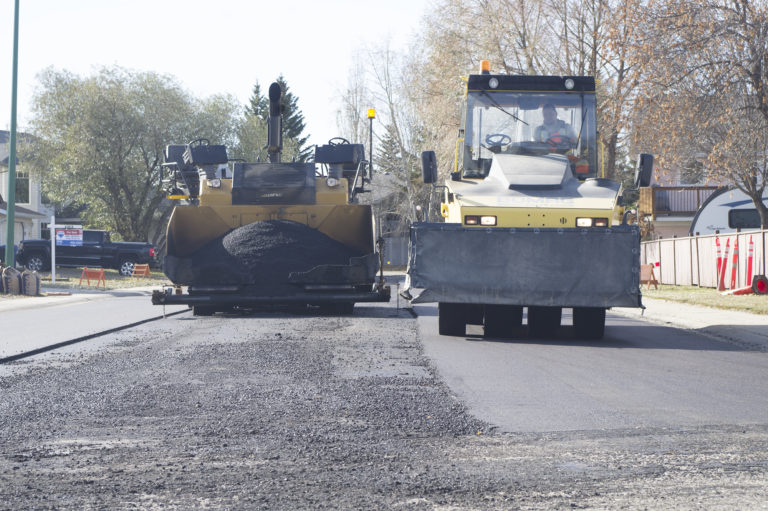
Premier Scott Moe pledged to spend an additional $2-billion on infrastructure over the next two years to help Saskatchewan’s economy recover from the COVID-19 pandemic.
The provincial government planned to spend roughly $5.5-billion on capital infrastructure projects over the next two years, but that number will now be closer to $7.5-billion.
“For the past several weeks across this country, we have been paying people to stay at home,” Moe told reporters on Wednesday. “Governments of all levels have been paying businesses to stay closed. I understand why we had to do that, and it was the right thing to do, but moving forward as a society, we need to get back to paying people to go to work.”
The $2-billion funding boost includes $300-million for highway projects, $200-million for health infrastructure, and $135-million for education infrastructure. Moe said more details about those projects will be coming in the future.
The government also promised $150-million in per capita payments to municipalities through a new Municipal Economic Enhancement Program. Those funds can be used on city infrastructure projects.
Moe said the funding would generate roughly 10,000 jobs in the construction and contractor jobs. He also said the provincial government may consider “front-loading” the municipal revenue sharing program so Saskatchewan communities would have more financial flexibility.
When asked if he was worried about running out of money due to the increase in capital spending, Moe said he was confident they were making the right move.
“I feel this is of vital importance as we try to enhance the economic recovery and provide the opportunity for people to get back to work from corner to corner in this province,” he explained.
SaskBuilds will provide oversight, project management and procurement expertise. Deputy premier Gordon Wyant said their goals were to make sure all projects are shovel ready by 2021-22, and that Saskatchewan companies get the contracts.
“It’s precisely our goal to make sure that we put Saskatchewan workers to work to benefit the recovery of the economy,” Wyant said. “I think we have the tools in place here to do that. Priority Saskatchewan will be keeping a very, very close eye with respect to not just on the tenders, but the award of the tenders, and not just within executive government, but within the crown sector as well…. We think we’re very well positioned to make sure that Saskatchewan companies benefit.”
There are no plans to bring MLAs back to the legislature to debate the spending plan. Moe said Saskatchewan residents will have ample opportunity to judge its merits as the media reports on it.
Provincial opposition leader Ryan Meili applauded the government for increasing their infrastructure spending, but remained skeptical about whether Saskatchewan workers would benefit.
Meili pointed to the Regina bypass contract, which was awarded to a consortium led by a French construction firm in 2015, as evidence that not all government projects benefit Saskatchewan companies.
Meili also criticized Moe for not recalling MLAs to debate the plan in the legislature.
“This is once again a commitment of a large amount of money with a small amount of detail,” he said during a press conference on Wednesday. “We understand things are moving quickly, but there is a need (for transparency).”
The $7.5-billion infrastructure investment includes $2.7 billion in capital funding announced back on March 18. That spending includes $15-million for the planning, designing and procurement of a new and expanded Victoria Hospital in Prince Albert. It also includes $15.7-million to continue construction on a new 72-bed, long-term seniors care facility in Meadow Lake, and $2-million for a new CT scanner in Melfort.
The Saskatchewan Heavy Construction Association (SHCA) welcomed Moe’s announcement, calling it a much-needed boost for the construction industry, and urged the provincial government to make sure the infrastructure contracts went to Saskatchewan businesses.
Prior to the COVID-19 pandemic, the provincial economy was already facing headwinds through depressed resource prices, anti-pipeline policies and rail blockades,” SHCA president Shantel Lipp said in a press release. “The announcement today will mean a big boost in the arm, not only to the construction industry, but to the province as a whole.”
Moe said construction crews will still have to adhere to social distancing guidelines on the job site for as long as those guidelines remain in place.
